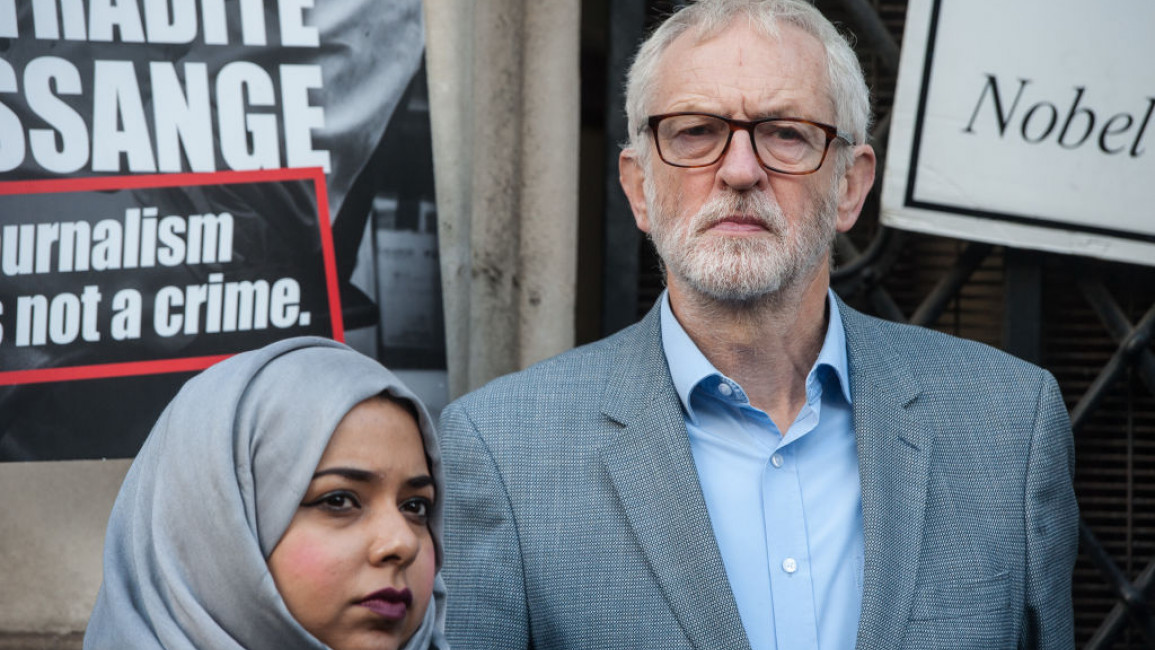
Hard times for Labour’s left?
It currently seems like a gloomy time for the left in the Labour Party. After a two year delay, the Forde Report - established to investigate the explosive contents of the Party’s 860-page Leaked Report into the functioning of its Legal and Governance Unit - was finally published in July. It found significant evidence of discriminatory behaviours by Party officials based on religion, race, gender and sexual orientation, which the report says was “shocking”.
Journalist Peter Oborne’s detailed analysis led him to conclude that former Labour leader Jeremy Corbyn had been the victim of “a grotesque miscarriage of justice.” He warned: “Forde has provided Starmer with an opportunity to put this right. He is unlikely to rise to the challenge because Starmer has fashioned himself as the nemesis of the Labour left and not a statesman who can bring together all factions of his great party.”
This was prescient. Apart from a belated, perfunctory statement of apology, the Labour leadership largely ignored the report.
''Since September, 20,000 new members have joined Labour’s ranks. Many of these are not committed to any particular faction, but just want a Labour government. They will not be happy with a leadership that continues similar policies to the Tories. The left will need to be in the Party when those conversations take place.''
There is a growing sense of injustice. Every democratic advance made is thwarted by Labour’s factional apparatus. Hard-won rule changes that democratise the Party are overturned. Naomi Wimborne-Idrissi, newly elected to the Party’s National Executive, was suspended for speaking at an event organised by a proscribed group.
The Party has proscribed several organisations in the last year and some members have been excluded for retrospective association with them.
A number of would-be prospective parliamentary candidates have been removed from the running by the Party hierarchy. Emma Dent Coad, who had already been an MP from 2017 to 2019 and is Leader of the Labour Group on her Council, was blocked from running for the winnable Kensington seat.
Maurice Mcleod was similarly barred from the Camberwell & Peckham shortlist. Labour List reported: “The exclusion of Mcleod, who is a racial justice campaigner and former editor of The Voice, Britain’s leading Black newspaper, comes amid concern over the number of Black men selected to stand for Labour.”
Lauren Townsend was removed from the Milton Keynes selection, allegedly for ‘liking’ a tweet from SNP leader Nicola Sturgeon, in which she had announced she had tested negative for Covid. Earlier this year Maya Evans, Deputy Leader of Hastings Council, and Stroud Council Leader Doina Cornell were blocked from running for parliamentary seats. All the contenders were on the Party’s left.
Many activists conclude the Party leadership is deliberately creating an unwelcome environment for them. If so, it’s proved an effective strategy over the last two and a half years, with over 150,000 members leaving.
Even sitting MPs are not immune from the squeeze, with Sam Tarry being deselected in Ilford South after being sacked from Starmer’s shadow ministerial team for supporting striking workers and “making up policy”. Apsana Begum, MP for Poplar and Limehouse, is also the focus of a reselection battle.
Her case has raised serious concerns. The Party’s decision to continue the selection process against its only hijab-wearing MP while she was signed off sick from work led to accusations that the leadership had abandoned its duty of care towards her. Simon Fletcher, who worked for successive Labour leaders, concluded: “The widely-held view on the left is that, if Begum were not a member of the left-wing Socialist Campaign Group of MPs, the party’s response would have been completely different.”
On the other hand, most left wing MPs have been safely readopted. And even open seats have seen some success for the left, with, for example, the selection of Faiza Shaheen in winnable Chingford. At local government level too, there were modest gains in May’s Council elections.
At Labour’s Annual Conference, the left still continues to make the running on Party policy, while the right seems more interested in factional battles. And although Starmer tends to ignore Conference resolutions that he does not like, for example, on public ownership and immigration, the rise of industrial action in recent months could push Labour towards more radical measures to tackle the cost of living crisis. That movement will need to be sustained given that, if Labour does win the next general election, it will be in the worst economic conditions it has inherited for over half a century.
Labour’s massive poll lead suggests this is likely. But with two years before a general election must be called, much could change. In April of this year the Independent noted that Labour was “flailing against the calamitous and incompetent Conservatives” with only a narrow poll advantage.
If Labour’s poll lead shrinks, Starmer will face a dilemma. The strategy of driving out the left assumed that Boris Johnson’s 80-seat majority could not be overturned immediately. So moving the Party rightwards was the first step in a two-term strategy. Now the next general election looks eminently winnable, Starmer will have to calculate how much support he needs from his grassroots, many of whom currently feel manipulated and mistreated.
Since September, 20,000 new members have joined Labour’s ranks. Many of these are not committed to any particular faction, but just want a Labour government. They will not be happy with a leadership that continues similar policies to the Tories. The left will need to be in the Party when those conversations take place.
For those choosing to ‘stay and fight’, there are some grounds for optimism. At local and regional level Labour are notching up some significant achievements, in terms of social housing and community wealth-building. Even where Labour is not in control, local Labour Councillors who join picket lines are adding legitimacy to cost of living disputes.
There are still many spaces in which Party activists can do politics differently: “They need to be completely embedded in the community, they must understand needs and have an activist approach to solving problems,” argues Councillor Maya Evans, illustrating in one ward the possibilities of Party activism.
Labour Students and Young Labour remain on the left and Party officers at local level have the scope to organise radical activities. “People should proceed until apprehended, rather than assuming they can’t do anything,” one long-standing activist told me.
Some of this may look pedestrian compared to the exciting opportunities of the Corbyn years. Yet the conditions that produced the Corbyn surge seven years ago have only intensified. Former Corbyn Director of Strategic Communications James Schneider argues: “The incline of the left is up, even if the angle may not be very steep. There’s a lot of rebuilding and new work that’s going on.”
After twelve years of Labour in Opposition, most people seeking a political alternative – especially trade unionised workers now in struggle - will support Labour at the next general election. Labour’s right has a strategy: demoralise the left and drive them out, expelling a few hundred, but hoping that thousands will voluntarily quit. The left should have the confidence of its ideas to fight on where it matters most.
Mike Phipps is a long-term Labour and anti-war activist, whose new book Don’t Stop Thinking About Tomorrow: The Labour Party after Jeremy Corbyn is available from OR Books. He writes regularly for the platform Labour Hub.
Follow Labour Hub on Twitter: @LabourHub
Have questions or comments? Email us at: editorial-english@newarab.com
Opinions expressed here are the author's own and do not necessarily reflect those of her employer, or of The New Arab and its editorial board or staff.




